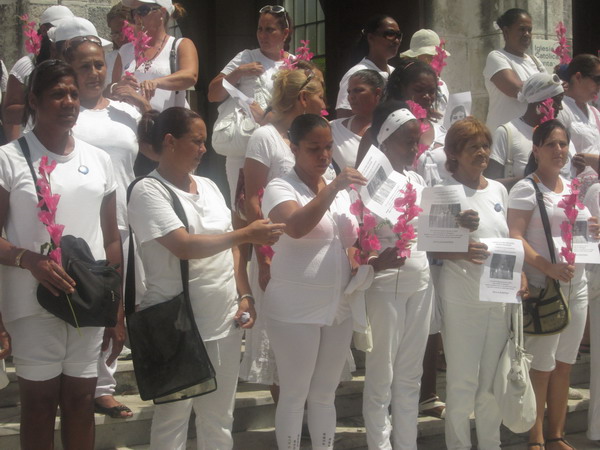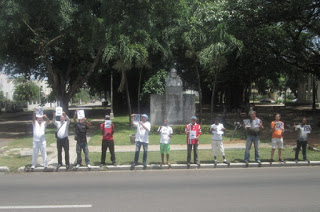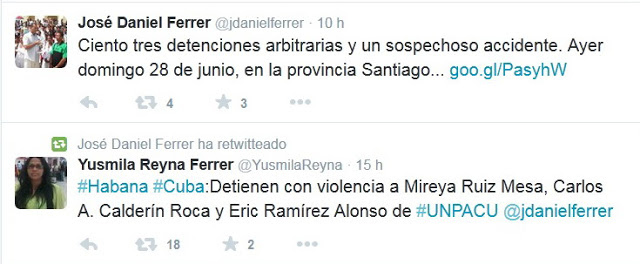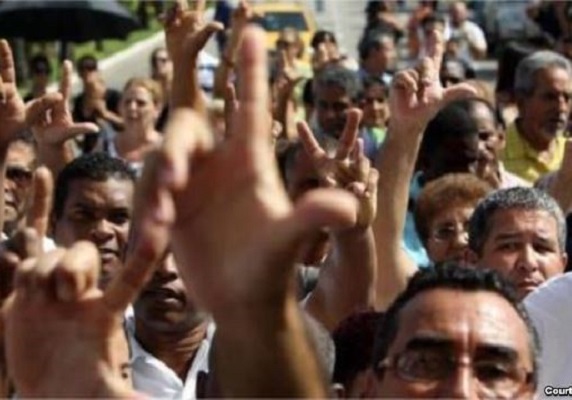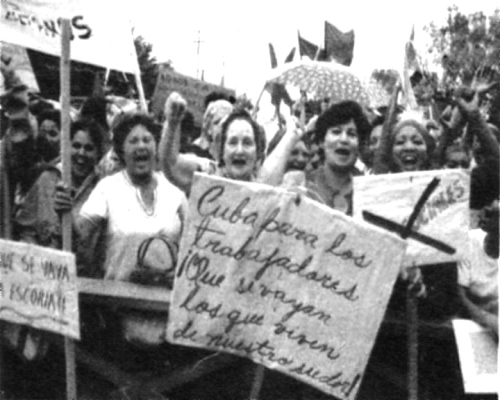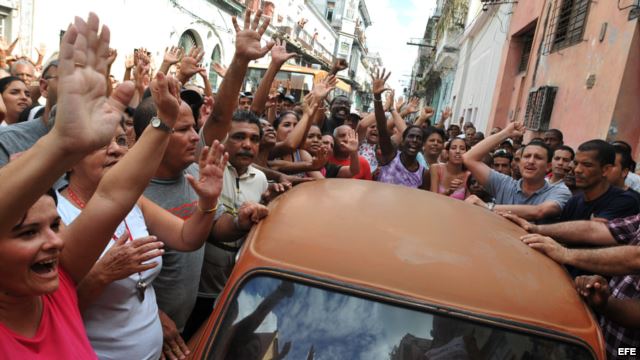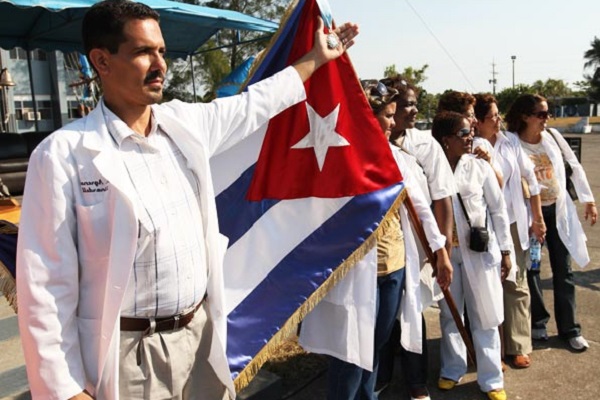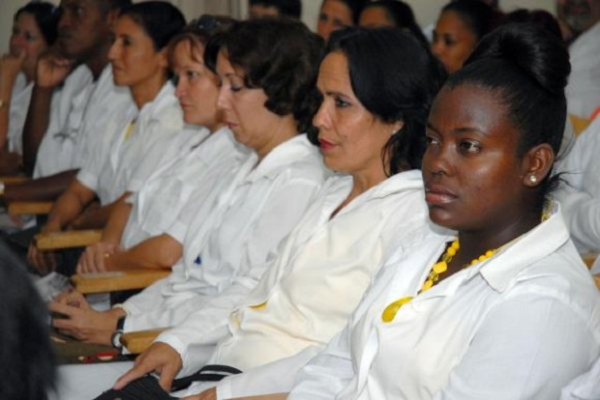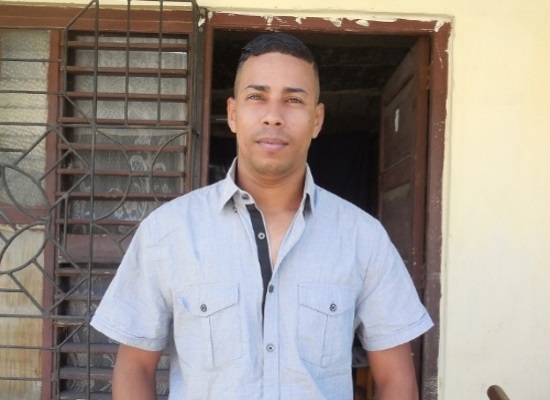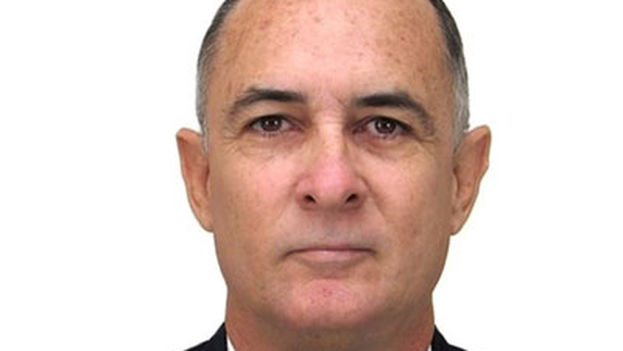
![]() 14ymedio, Havana, 3 November 2015 – He just won the top prize in the Havana Newsprint journalism contest, but Roberto de Jesus Quinones feels that reporting is only one part of his civic responsibility. A lawyer by profession, this man from Guantanamo had to enter the world of reporting, press releases and the difficult search for sources in a country where independent reporters are frowned upon and outlawed by the ruling party.
14ymedio, Havana, 3 November 2015 – He just won the top prize in the Havana Newsprint journalism contest, but Roberto de Jesus Quinones feels that reporting is only one part of his civic responsibility. A lawyer by profession, this man from Guantanamo had to enter the world of reporting, press releases and the difficult search for sources in a country where independent reporters are frowned upon and outlawed by the ruling party.
Reinaldo Escobar. How does it feel to get this award?
Roberto de Jesús Quiñones. I am very happy, especially because the award has come at a time when I felt really badly about everything that has happened to me since October 5. So am doubly pleased, because I also know that participating in the contest were very worthy colleagues whom I respect greatly, such as the columnist Miriam Celaya, the attorney Rene Gomez Manzano and the reporter Manuel de Jesús Guerra Pérez. All of them are journalists of the independent media with years of experience in the profession. continue reading
RE. How did you come to do independent journalism?
RdJQ. I am a graduate in law and when I left the prison (Editor’s note: he was convicted of falsifying documents in the process of buying and selling a home, although it is suspected that it was actually for his role as a lawyer in the defense of regime opponents) I asked repeatedly to be able to return to the practice of that profession, but I could not do it. A few years ago I wrote and have five books of poetry in Cuba, primarily with the Oriente publisher. I also came out with a volume of stories in Miami. It was the jurist Gomez Manzana who got me to contact Cubanet, and I’ve also collaborated sporadically with Primavera Digital.
RE. Are you still a member of the Cuban National Union of Writers and Artists (UNEAC)?
RdJQ. No, no. I’m in a process of leaving that group and although I asked to step down, they have not even responded.
RE. In what genre or on what topics do you mostly work?
RdJQ. I’ve done cultural journalism since the early eighties. For about five years I worked with the local media of Guantanamo writing film criticism and I even had a program on that topic on TV in the province. Although I must say I also really like the opinion column.
RE. How do you see the health of independent journalism in Cuba?
RdJQ. Unfortunately, from Guantanamo it is very difficult to read Web sites, as is the case with 14ymedio. Sometimes I can get the content of some of those independent media through bulletins or compilations that I receive via email. There is a great deal of unknown talent in Cuba, people of great intelligence and value who are removed from the official media. It is a pity that the Cuban people cannot more freely access the work of those colleagues, because they are very competent people and extremely good articles published.
RE. When people ask you about not having a journalism degree, how do you respond?
RdJQ. It is true that I did not study journalism, so I found all this work very difficult, but I train myself and try to do my best. My goal is to be objective in each text and seek the truth. On the other hand, doing this reporting has forced me to see the reality of this country and I have learned a lot.
RE. Independent journalism versus official journalism?
RdJQ. Independent journalism has put the bar very high – to use a sports metaphor – for official journalism. The social networks and alternative ways of distributing news has also meant the ability to empower people through information. People spread the news and that has benefited Cuban independent journalism, which is experiencing a good time.

